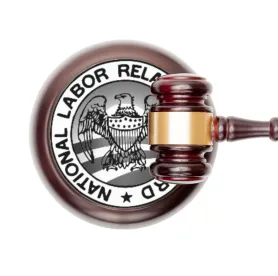On March 22, 2023, the General Counsel of the National Labor Relations Board (the “Board”) issued a memorandum purporting to provide guidance in response to inquiries about the Board’s February 2023 decision in McLaren Macomb (which we covered in a previous blog post). In that decision, the Board held that the merely offering of a severance agreement containing broadly drafted nondisparagement and confidentiality provisions was unlawful under the National Labor Relations Act (the “Act”). The decision raised more questions than answers, which employers hoped would be resolved by the much-anticipated guidance from the General Counsel.
While the guidance does not provide any specific examples of clauses that are permissible or impermissible, the General Counsel did offer further guidance on her interpretation of the decision that employers should weigh in drafting and enforcing separation agreements. The key takeaways are as follows:
-
Retroactive Application. The memo confirmed that the decision applies retroactively, including to agreements entered prior to February 21, 2023. Further, the memo stated that the General Counsel believes that, despite the Act’s six-month statute of limitations period, “maintaining and/or enforcing a previously-entered severance agreement with unlawful provisions” will constitute a continuing violation, such that an unfair labor practice (ULP) charge would not be time-barred if filed beyond that six-month window.
-
Application to Supervisors. While the General Counsel correctly noted that supervisors are not protected by the National Labor Relations Act, she references at least one scenario under which she “believe[s]” that severance agreements proffered to statutory supervisors may fall within the decision. Specifically, the General Counsel indicated that a provision that prevents a former supervisor from participating in a Board proceeding could be unlawful.
-
Potential Consequences of Overbroad Clauses. The General Counsel indicated that Regions should generally seek to void only unlawful provisions, rather than the entire agreement.
-
Foreshadowing the Board’s Next Targets. In addition to confidentiality and nondisparagement clauses, the General Counsel dubbed a number of other common contractual provisions as “problematic” and potentially unlawful, including restrictive covenants, “broad liability releases and covenants not to sue that may go beyond the employer and/or may go beyond employment claims and matters as of the effective date of the agreement,” and requirements that an employee participate in future investigations or proceedings.




 />i
/>i
